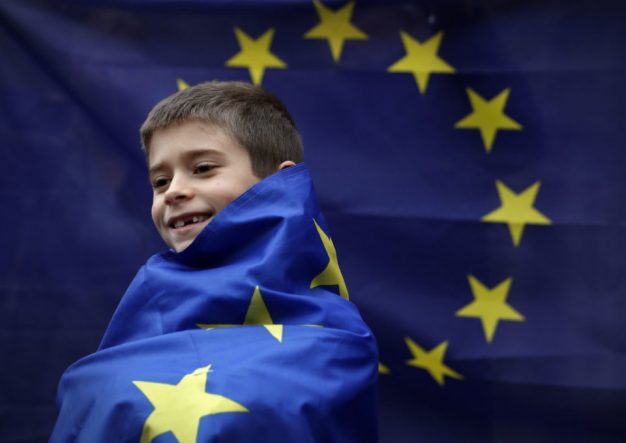
Europe’s governing bodies – how do they work for children?
Have you ever been bamboozled in trying to work out exactly how Europe’s policy-makers work together for the benefit of children?
With the array of cross-cutting legislative bodies and policy-making mechanisms that exist, it can sometimes be confusing. Child in the City offers you a simplified breakdown of who does what and how it all knits together.
Our starting point is that the European Union (EU), European Commission, and European Parliament work in close partnership to uphold and advance children’s rights across the member states.
Together, they form a multi-layered governance structure that collaborates on legislative, policy, and advocacy initiatives aimed at promoting the well-being and protection of children throughout Europe.
At the heart of this partnership is the European Union, an economic and political union of 27 member states committed to promoting peace, prosperity, and solidarity among its citizens. While the EU has historically focused on economic integration, it has increasingly expanded its scope to include social and human rights issues, including children’s rights. The EU provides a framework for member states to collaborate on common challenges and shared objectives, including the protection and promotion of children’s rights.
‘A framework to collaborate on common challenges’
Then, within the EU, the European Commission serves as the executive branch responsible for proposing legislation, implementing policies, and managing the day-to-day operations of the Union. The Commission plays a central role in advancing children’s rights through various initiatives, programs, and funding mechanisms. It conducts research, provides expertise, and coordinates actions across different policy areas to address the specific needs and concerns of children.
One of the key functions of the Commission in promoting children’s rights is the development of legislation and policy frameworks at the EU level. The Commission works closely with stakeholders, including civil society organisations, experts, and member states, to draft directives, regulations, and recommendations that uphold children’s rights and ensure their effective implementation across the Union.
These legal instruments cover a wide range of issues, including child protection, education, healthcare, social welfare, and juvenile justice.
Moreover, the European Commission allocates funding to support initiatives and projects that promote children’s rights and well-being. Through programs such as the European Social Fund, the Rights, Equality and Citizenship Programme, and the Erasmus+ Programme, the Commission provides financial resources to member states, local authorities, NGOs, and other stakeholders working to advance children’s rights through education, social inclusion, and community development initiatives.
In parallel to the European Commission, the European Parliament represents the interests of EU citizens and plays a crucial role in shaping legislation and policies related to children’s rights. Composed of directly elected members from each member state, the Parliament serves as a forum for debate, negotiation, and decision-making on a wide range of issues affecting children. Members of the European Parliament (MEPs) advocate for children’s rights, participate in legislative committees, and contribute to the drafting and revision of EU laws and policies.
‘A crucial role in shaping legislation’
The European Parliament’s Committee on Civil Liberties, Justice and Home Affairs (LIBE), for example, oversees matters related to fundamental rights, including children’s rights, within the EU. This committee reviews legislative proposals, conducts inquiries, and issues reports on issues such as child trafficking, child protection, and asylum and migration policies affecting children. MEPs also engage with stakeholders, including children themselves, to ensure that their voices are heard and their rights are respected in EU decision-making processes.
In addition to legislative and policy initiatives, the European Parliament plays a crucial role in monitoring and evaluating the implementation of children’s rights across the EU. MEPs hold hearings, organize public debates, and issue resolutions calling for action on specific issues, such as child poverty, access to education, and child-friendly justice systems. Through its oversight function, the Parliament holds EU institutions and member states accountable for their commitments to children’s rights and advocates for stronger protections and support mechanisms.
Through legislative initiatives, policy frameworks, funding mechanisms, and advocacy efforts, these institutions collaborate to promote the well-being, protection, and participation of children throughout Europe. By working together, they strive to create a safer, more inclusive, and child-friendly Europe where every child can thrive and, with encouragement, fulfil their potential.




